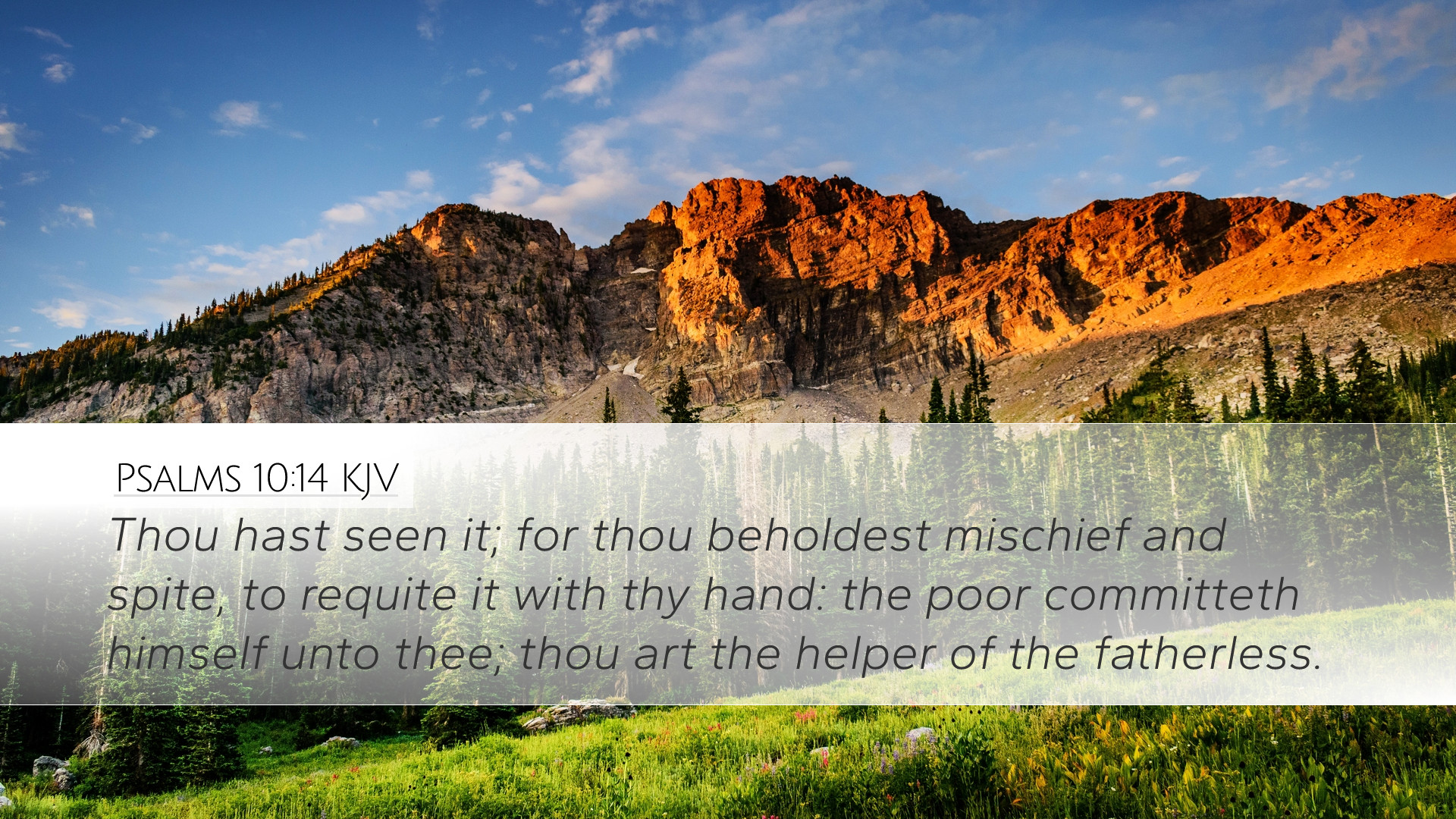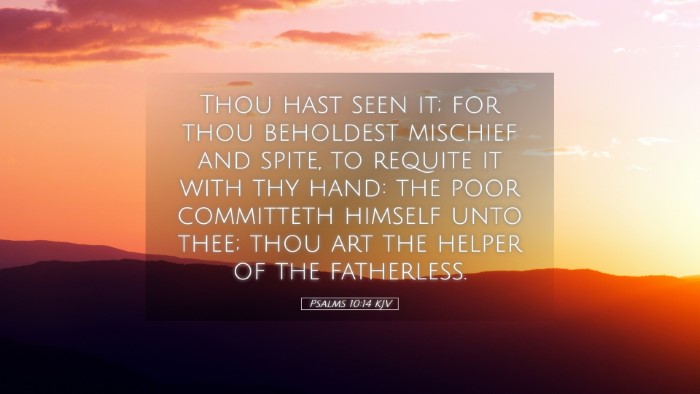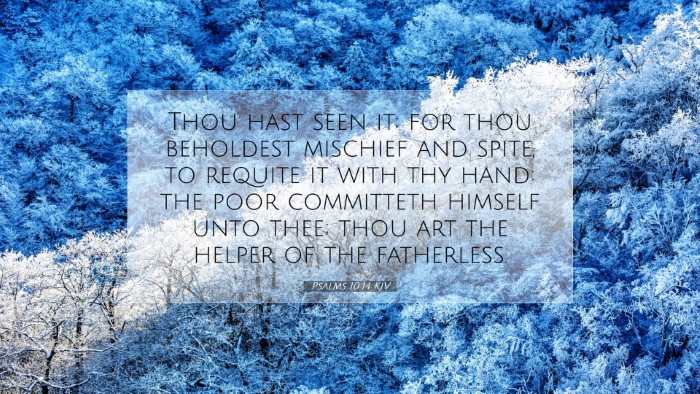Psalms 10:14 Commentary
Verse Reference: Psalms 10:14 - "But thou hast seen it; for thou beholdest mischief and spite, to requite it with thy hand: the poor committeth himself unto thee; thou art the helper of the fatherless."
Contextual Background
Psalms 10 is a poignant expression of the psalmist's struggle with apparent injustice in the world, particularly concerning the plight of the oppressed. The psalmist opens with a cry about the seeming disinterest of God in human suffering, particularly as the wicked prosper. This verse serves as a profound confession of faith amid despair.
Commentary Insights
1. The Divine Oversight
Matthew Henry emphasizes the certainty of Divine watchfulness: "But thou hast seen it." He notes that God is not oblivious to the machinations of the wicked. The psalmist reassures himself and his readers that despite appearances, the Lord observes every act of malice and injustice. This acknowledgment serves to comfort those who suffer, reinforcing that no evil goes unnoticed by the divine.
2. God’s Active Response
Albert Barnes elaborates on God's promise to respond to injustice. The phrase "to requite it with thy hand" suggests God's active role in avenging wrongs and rectifying injustices. Barnes points out that it is not merely an observation but an assurance that God will act in accordance with His justice, supporting the oppressed and punishing the oppressor.
3. The Role of the Poor and the Fatherless
Adam Clarke highlights the identifiers of the vulnerable in society. The poor and fatherless symbolize those who lack earthly defense and support. Clarke suggests that their reliance on God is critical and reflects a profound faith. The verse reassures them of God's compassionate nature, being their helper. This is a powerful reminder that the divine favors the downtrodden, offering them a refuge in their time of distress.
4. The Nature of God’s Help
The psalmist’s declaration that "thou art the helper of the fatherless" underlines not just a passing interest but a deep-seated commitment of God to defend and advocate for the vulnerable. The commentaries collectively affirm that God’s help is not abstract; it translates into practical assistance for those in need. This shifts the focus from merely waiting for divine intervention to actively trusting in God's providence.
Theological Reflections
This verse encapsulates key theological themes relevant to the faith community today:
- Justice and Righteousness: The expectation of divine justice reinforces the belief that evil will not ultimately triumph.
- The Dependence on God: This passage encourages believers to cultivate a spirit of dependence on God, especially in hardship.
- God's Character: It reveals the compassionate heart of God toward the helpless, affirming His nature as a protector.
Practical Applications
For pastors, students, and theologians, integrating the insights from this verse can involve:
- Teaching on Divine Justice: Emphasizing God's awareness and response to injustice in sermons.
- Encouragement for the Vulnerable: Providing practical help and spiritual support for those who are impoverished or marginalized, reflecting God's heart for the fatherless.
- Building Faith Communities: Cultivating a community ethos of prayerful support, encouraging individuals to rely on God's assistance in their struggles.
Concluding Thoughts
Psalm 10:14 serves as both a lament and a declaration of faith. It addresses the challenges of injustice while emphasizing God’s sovereignty and compassion toward the oppressed. By deriving insights from public domain commentaries, we see that this verse urges believers not only to recognize their own vulnerability but to trust in and rely upon God’s unwavering support. It challenges the faithful to become advocates for justice on earth, emulating the divine character of compassion.


